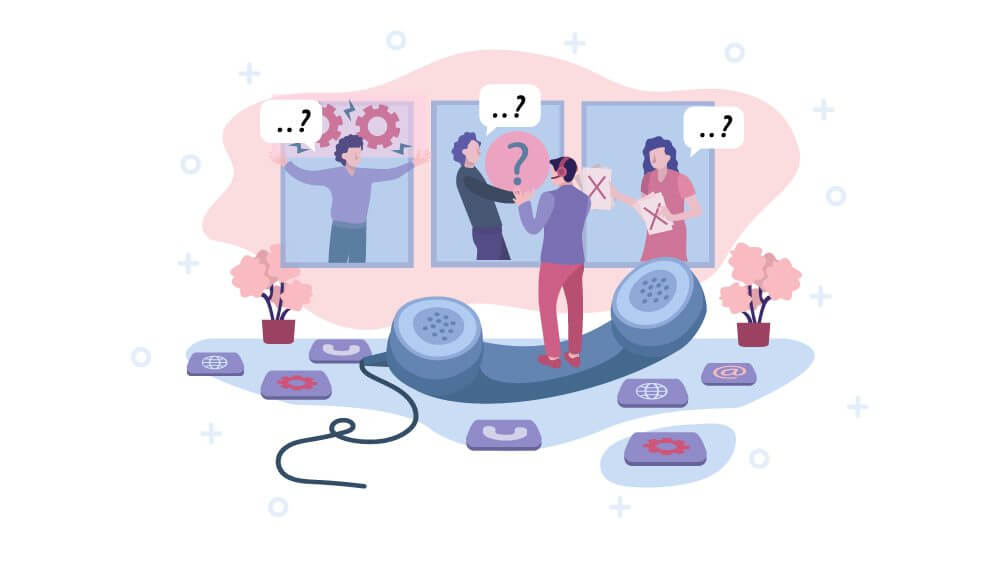Do Ethics Hotlines Work?


Workplace harassment is something that no business owner really wants to talk about. Everyone wants to feel that their workspace is a safe place – but unfortunately, issues of bullying, discrimination, fraud, and more are woefully common in today’s offices. The statistics are dire:
- 21% of Americans have experienced sexual harassment in the workplace
- 64% of workers have experienced verbal abuse in the healthcare industry alone
- 90% of older workers claimed that age discrimination on the job is a common occurrence
To counteract these unethical issues, many companies have considered implementing a hotline where employees can report acts that violate the company’s behavioral standards. But do these hotlines really work? Research indicates that they do – in fact, we believe that ethics hotlines are essential for your business.
How Ethics Hotlines Work
Using an ethics hotline is relatively simple: when an employee believes that they witnessed or experienced some form of unethical behavior, they call a hotline to anonymously report it. Most companies work with a third-party provider, who will staff the hotline with individuals who have no conflict of interest with the organization or employees. For effective cultural impact, these individuals should also be trained and familiar with common compliance, HR, and ethics issues – rather than generic customer service call center employees. These hotlines are available 24/7, so that employees can report behavior when they feel most comfortable.
Once an employee reports some form of issue, the operator who takes their call then passes the tip along to the appropriate department and manager. The manager can then investigate further and act as necessary, all without identifying the employee who first reported the issue.
Companies can use ethics hotlines to receive information about a variety of crimes, including:
- Fraud or theft
- Bullying
- Harassment (sexual, verbal, etc.)
- Discrimination
- Safety or health violations
- Other forms of noncompliance (e.g., HIPAA violations in a medical facility, KYC violations in finance)
Why Ethics Hotlines Are Effective
A common argument against ethics hotlines is that they’re ineffective. Detractors say that employees won’t use the hotlines, as they may fear retaliation from their employers or coworkers. However, there is growing research to show that this simply isn’t true – in fact, ethics hotlines are an effective way to curb wrongdoing in your organization. As with so many things, the way a hotline is set up and run makes all the difference.
They Encourage Reporting
According to a report from the National Business Ethics Survey of the U.S. Workforce, 60% of individuals who reported misconducts to an ethics hotline reported someone who worked in management. This data tells us something rather troubling: employees feel that they can’t report unethical behavior because their bosses are the culprits.
A third-party hotline eliminates the fear of continued harassment or retaliation. Workers can comfortably report issues they see at the office without worrying about how the accused (their boss or co-worker) will respond to their claims. This gives your employees the freedom to be totally honest and help you create a more ethical environment.
They Mitigate Risks and Provide Actionable Insight
The best way to protect your workers (and your business) is to prevent unethical behavior before it happens. Hotlines are a great way to stay on top of brewing misconduct. If an employee reports that his co-worker is acting suspiciously in the office, you can closely monitor that worker and watch for signs of illegal or unethical activity.
By giving employees a chance to report suspicious behavior, ethics hotlines can help you catch bad actors before they do real damage. A study from the Association of Certified Fraud Examiners found that an incredible 46% of companies that experienced fraud learned of the case through a hotline tip. Additionally, companies with hotlines saw 50% smaller fraud losses than those without! Implementing an ethics hotline just might be the thing that saves your business from fraud or theft.
They Empower Employees
As we’ve mentioned earlier, most third-party hotlines offer 24/7 access to an operator. This is absolutely essential, as some employees may not want to discuss what they’ve seen during business hours. Giving your employees the opportunity to report behavior on their own time gives them an important sense of power.
Instead of reporting someone when they’re nervous and surrounded by their co-workers, they can speak out when they feel most comfortable and confident. In this way, you are showing your employees that you care for their mental health – both in the office and at home.
They Establish an Ethical Culture
Statistics from the Equal Employment Opportunity Commission indicate that 28% of workplace sexual harassment victims failed to report the incident. Why? They believed that nothing would be done to handle the issue. This is just one disappointing statistic that shows us how corporate culture has eroded over time – but an ethics hotline can help turn things around.
When you have an ethics hotline in place (and you openly discuss it with your employees), your workers will understand that your company is dedicated to doing what’s right. This will inspire your employees to live up to this standard and encourage them to speak up when they see something wrong.
Give Your Employees A Safe Place to Report
If you want to build a corporate culture founded on ethics, a compliance hotline is a great place to start. Visit ComplianceLine today to see how our solutions can help your business become a safer and more ethical space.





































